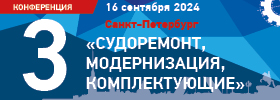European interception
While Russian ports are counting potential losses from standardization of railway tariffs, European Union is preparing solid investments into ports competing with Russia. Russian railways may win in this situation.
Standardization of the railway tariffs for cargo transportation towards port stations and land border crossings caused by Russia’s accession to WTO lets the ports of the neighboring states “off the leash”.
Klaipeda Seaport Authority has recently announced its intention to invest $127.41 mln (328 mln Lt excluding VAT) for the port development in 2013. The investment financing resources of the Seaport Authority is the received income comprising the Port dues, land lease fees, the loans from EU assistance funds and banks. This financing will be allocated to develop the Port’s access roads and railway tracks, to dredge the Port waters, to install the most sophisticated information systems. A certain share of funds is also allocated for construction and reconstruction of Klaipėda town roads.
In particular, $ 33.2 mln (84.2 mln Lt) shall be allocated for construction and reconstruction of quays, $32.7 (81.5 mln Lt) for capital dredging works, $9.1 mln (23 mln Lt) for construction and repair of railway tracks, $32.7 mln (82.8 mln Lt) for construction of infrastructure of LNG terminal and capital dredging works of the Port waters, $15.4 mln (39 mln Lt) for other infrastructure development projects, $6.9 mln (17.5 mln Lt) for other projects.
In 2013, the Port Authority is planning to receive $65.8 mln (166.8 million Lt.) of incomes, $37.8 mln (93.9 million Lt.) of EU assistance and to borrow $57.6 mln (146 million Lt.).
Besides, in January 2013 European Bank for Reconstruction and Development (EBRD) and Skandinaviska Enskilda Banken AB (SEB) announced their intention to lend EUR 32.5 mln each to the development of the Lithuanian port’s container handling capacity. As it is stated in EBRD materials, the financing is to support Klaipedos Smelte, part of Terminal Investment Limited.
This financing is to be used for the purchase of cranes, new equipment and expansion of the existing terminal. According to Sue Barrett, EBRD’s Transport Director, with this investment, the EBRD will help turn Klaipeda into a Baltic transshipment hub.
Polish ports of Gdansk and Gdynia also have container terminals handling containerized cargoes directed, for Russia as well.
In particular, Gdansk container terminal handled 896,962 TEUs in 2012, 40% of which (according to the market players) is made by cargoes destinated for Russia. The investment program provides for the expansion of the terminal annual capacity to 4 mln TEUs. The terminal is linked with Russian ports of Kaliningrad and St. Petersburg by a regular container service Seago Line. In 2012 the port of Gdansk transshipped 928,900 TEUs, which is almost 35% higher as compared with the result of 2011.
Baltic Container Terminal in Gdynia saw a container turnover growth of 13% to 408,722 TEUs in 2012. The terminal’s investment program implies allocation of some $50 mln in the purchase of new cranes and rescue refrigerated storage facilities. 35% of the financing is to be provided from EU funds.
Other Baltic ports also feel quite good with Russian container cargoes. Regular container trains with automobile components started to go from Estonian port of Muuga to Kaluga. Another container train with transit cargo from China goes from Riga to Moscow and from Klaipeda to Moscow. Besides, Tallinna Sadam group has recently ordered a risk analysis for Muuga port development which confirms its plans on further expansion.
It should be noted that container turnover of St. Petersburg and Ust-Luga terminals gained some 6.7% to over 2.53 mln TEUs.
The development of foreign ports challenges both the project of a deep water port in Kaliningrad region (not called off officially) earlier covered by PortNews IAA >>>>, and the prospects of Ust-Luga port expected to transship part of container flow going to Russia via foreign ports. Meanwhile, standardization of railway tariffs for cargo going towards land border crossings and port stations may “harm” other terminals with their investment projects. The reasons were discussed earlier >>>> .
Foreign harbors compete with Russian ports not only in container sector (it is just a high paying freight and the most telling example). For example, throughput of Baltic Coal Terminal in Ventspils (Latvia) transshipping Russian coal from Kuzbass increased by 18% to 4.79 mln tons in 2012. At the same time, further expansion of the coal terminal in Russian port of Vysotsk does not seem possible without construction of a railway line Losevo-Kamennorgorsk.
Meanwhile, railway companies seem to be quite satisfied with the situation unfavorable for Russian ports. With Russia’s accession to WTO, the tariffs calculation is now based on the distance so it is more profitable for Russian Railways as well as for cargo carriers to deliver freight from a distance. It is also supported by the position of the Federal Customs Service. We covered it in details in our article >>>> .
At the same time, the location of the foreign Baltic ports is a true competitive advantage against Russian ports. Foreign ports are closer to the Danish straits and are either ice-free or low ice ports. This reason is enough to say that Russian ports of the Gulf of Finland are in admittedly inferior situation therefore they need certain preferences. If adequate political decisions to support national terminals are not made at the highest state level, the situation will, most probably, become favorable for railways and foreign states. Hence Russian investments in port infrastructure will prove to be redirected overseas (it is a known fact that today a lot of port projects of the Baltic states are being developed or were started with the use of Russian funds) while strategic objectives announced by the government and aimed at redirection of Russian foreign trade cargo to national ports will be unreachable.
Vitali Chernov





